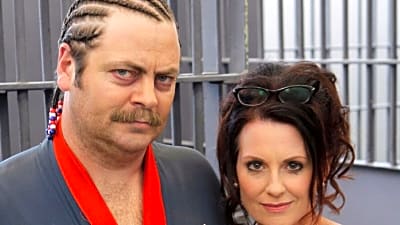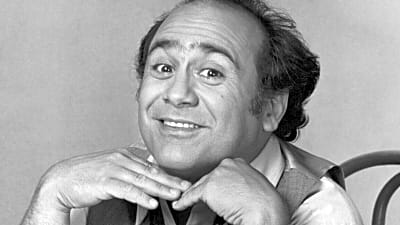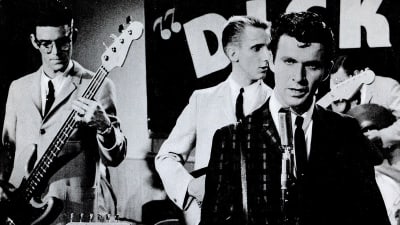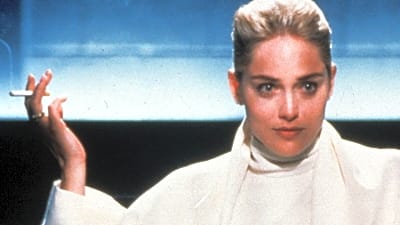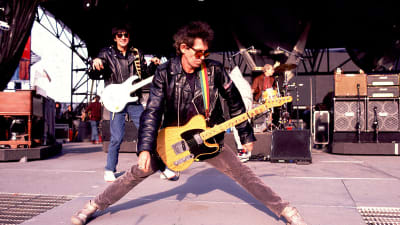"Tales from the Crypt" Turns 30, and the Crypt Keeper Doesn't Look a Day Over 300.
When "Tales from the Crypt" made its HBO debut on Saturday, June 10, 1989, expectations were running unreasonably high that the horror anthology would give the premium network a pedigreed programming boost.
At the time, the channel’s most successful original series consisted of "Inside the NFL" and the cloddish, nudity-laden likes of "The Hitchhiker" and "1st and 10." Basically, if it skewed adult on HBO, it was either sports-related or loaded with boobs. "Tales from the Crypt," on the other hand, with its Hollywood blockbuster-producing core of Walter Hill ("48 Hrs."), David Giler ("Alien"), Richard Donner ("Lethal Weapon"), Joel Silver ("Predator") and Robert Zemeckis ("Back to the Future') promised big-screen production value and well-crafted stories culled from Bill Gaines’ once-notorious, now-beloved EC Comics series. In the midst of a hype-heavy June that included the releases of "Ghostbusters II" and Tim Burton’s "Batman," the debut of "Tales from the Crypt" broke through the din. It was an event.
The 90-minute premiere delivered the gory, darkly moralistic goods that made the comics and the 1970s Amicus adaptations such ghoulish fun, but for many critics, that simply wasn’t enough. The L.A. Times' Chris Willman largely dismissed the first three installments for their lack of subtlety and ho-hum stories. These cheap-and-tawdry wallows were the best that three of Hollywood’s most dependable directors could offer? For many critics, it felt like a bloody waste of talent.
It’s wild that anyone could’ve sat through those visually inventive opening credits — which hurl the viewer through the spooky decrepitude of the pun-happy Crypt Keeper’s mansion as Danny Elfman’s devilish score pounds away in the background — and not have caught a gleefully macabre high. Horror fans had been waiting years for an anthology series that could play as rough as "Creepshow," and this, with its moldering animatronic host (designed by Kevin Yagher and indelibly voiced by John Kassir), was absolutely it. Hill’s lead-off episode, "The Man Who Was Death," was a nasty yarn about an executioner (William Sadler) who extra-judicially freelances in the same profession when he loses his job. Zemeckis took a crack at "And All Through the House," the best-remembered segment of Freddie Francis’ 1972 film in which a woman (Mary Ellen Trainor) is stalked by a psychopathic Santa Claus on Christmas Eve. Donner closed it out with the fiendishly clever "Dig That Cat… He’s Real Gone," wherein a buried-alive daredevil recounts the supernatural turn of events that led him to this stunt and realizes he’s made, as the Crypt Keeper might say, a grave mistake.
All three directors seem to be having a ball, and they all came back for more throughout the series’ seven-season run. (Zemeckis even dropped by post-"Forrest Gump" for "You, Murderer," which features a digitally inserted Humphrey Bogart.) Hill’s first encore, "Cutting Cards," a gambling-gone-gorily-wrong howler, is one of the show’s top episodes, while Donner got to go back to his "The Twilight Zone" roots with the Frank Darabont-scripted "The Ventriloquist’s Dummy," which features Bobcat Goldthwait and Don Rickles.
Though an anthology series would seem like a decent venue for up-and-coming filmmakers to make their bones, the producers instead turned the show into a horror playground for established directors. The only first-timers to get a shot behind the cameras were fairly well-known folks like Arnold Schwarzenegger, Tom Hanks and Kyle MacLachlan. For screenwriters, it was a different story.
Aside from Darabont, future A-listers who racked up early credits on "Tales from the Crypt" include Scott Alexander ("The People vs. Larry Flynt"), Andrew Kevin Walker ("Se7en") and Scott Rosenberg (“Con Air”). To the producers’ credit, they didn’t let the early critical shrugs deter them from their mission to provide horror fans with unabashedly bloody and thoroughly disreputable entertainment — just like Gaines served it up in the '50s (and thereafter as the publisher of Mad Magazine).
Their dedication to this cause cost them at the Emmys; the show was rarely nominated and never won (not even for makeup, which is absurd). But for all its pedigree, prestige was never the point with "Tales from the Crypt." It was a comic book in the purest sense: vivid, visceral and invigorating.
More must-reads:
- The best and worst fictional teachers
- Danai Gurira joins Michael B. Jordan's "Thomas Crown Affair" remake
Breaking News
Trending in Entertainment
Customize Your Newsletter
 +
+
Get the latest news and rumors, customized to your favorite sports and teams. Emailed daily. Always free!
